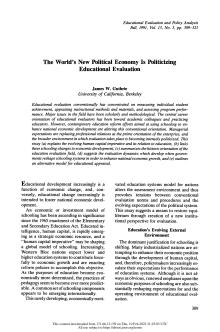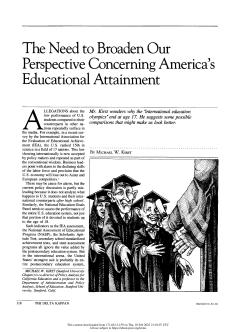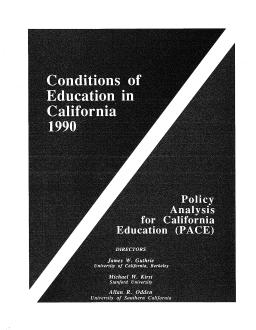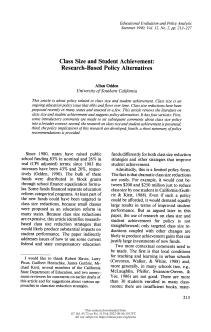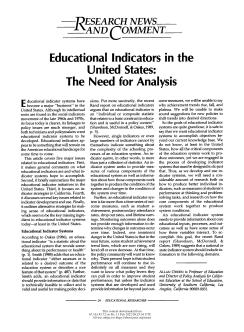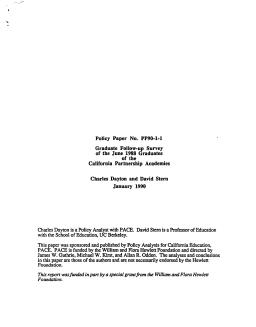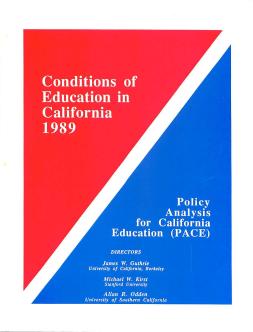Published
Summary
Traditionally, educational evaluation has focused on measuring student achievement and program performance. However, education reforms are now linking schooling to economic development, leading to a shift towards managerial expectations and politicization of the field. This article explains the human capital imperative and its relation to education, summarizes the history of educational evaluation, and outlines an alternative model for educational appraisal in the context of government-led education system reforms aimed at enhancing national economic growth.
Published
Summary
The U.S. ranks low in international education comparisons, but the discussion is misleading because it does not look at postsecondary education. The value added by the postsecondary education system, including community colleges, trade schools, and universities, is ignored. The U.S.'s strongest suit is probably its entire postsecondary education system in the international arena.
Published
Summary
CA's education system is affected by external factors like shifting demographics, declining economics, and intensifying politics, limiting the traditional routes of local decision-making and property taxation. Although some districts show excellence and commitment, creating and sustaining a statewide education system to meet 21st-century expectations is difficult without a comprehensive reform plan. Political conflict over revenue earmarking and school reform distracts from education improvement. This report describes and analyzes these issues, suggesting a comprehensive set of solutions.
Research-Based Policy Alternatives
Published
Summary
This article delves into the issue of class size in education, examining how it affects student achievement and suggesting policy alternatives. With some states proposing and implementing class size reductions, the analysis discusses the research on the subject and its policy implications. The piece is divided into four sections, starting with an introduction that provides context for the class size debate.
The Need for Analysis
Published
Summary
Educational indicator systems are in demand in the US due to their strong linkages to policy issues. This article covers five major issues related to educational indicators, including what they are, major initiatives in the US, and indicator strategies in California. It also discusses key issues related to indicator development and use and outlines alternative strategies for making sense of educational indicators, which are currently missing in the US.
Published
Summary
The study examines the Partnership Academies in California, which are designed to reduce high school dropout rates among at-risk students. Academies combine high school curriculum, technical courses, and support from local businesses, with funding based on student outcomes. Survey results indicate that Academy students had a lower dropout rate than comparison group students, were more likely to attend college, and earned higher wages while working and studying. Graduates from both groups reported being fairly satisfied with their high school preparation and achievements since graduation.
Published
Summary
This report examines the pervasive racial disparities in California's school discipline system, with a focus on the disproportionate suspension and expulsion of Black students, particularly Black males. Drawing from 1980s statewide data and court cases such as Larry P. and Watson v. Stockton, it documents patterns of overrepresentation in both special education placements and disciplinary actions. The report highlights how systemic bias—embedded in subjective referral categories like "willful defiance"—has led to significant exclusion of Black students from mainstream classrooms, perpetuating...
